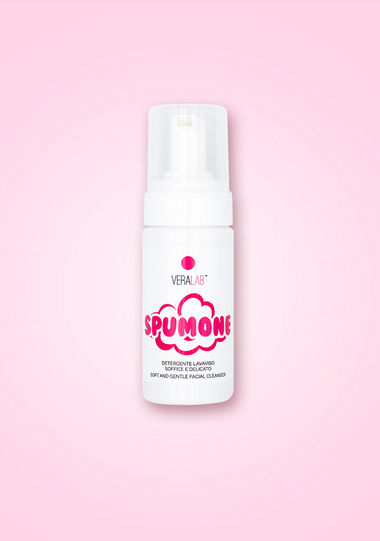Peninsula Capital Takes Minority Stake in Italy’s Buzzy Beauty Brand Veralab

MILAN — European private equity Peninsula Capital has taken a 30 percent stake in Reforme Srl, the parent company of Italian buzzy beauty brand Veralab.
While financial details of the deal were not disclosed, the two parties said the partnership is aimed at consolidating the development of the brand and pushing its international expansion by leveraging its leading position in the skin care category. Veralab claims to be the second-largest player online in the segment in Italy.
More from WWD
Quickly rising to be one of the most successful companies in the country’s beauty scene, the brand is the entrepreneurial venture of Cristina Fogazzi, a social personality best known as Estetista Cinica (or Cynical Aesthetician, in English).
As owner of the Bellavera beauty salon in Milan, Fogazzi created a blog to share her experience and answer questions from local beauty aficionados, ranging from depilation to anti-cellulite tips. Her bubbly, girl-next-door attitude and suggestions rooted in self-acceptance and body inclusivity quickly gained her a large following — now counting one million users on Instagram — which eventually convinced her to capitalize on her influence and launch the VeraLab skin- and body-care brand in 2016.

Boosted by catchy communication and affordable prices, the brand’s business boomed, especially during the pandemic, almost doubling its 2019 sales to reach 55 million euros in 2020. The company expects to report 2023 sales of more than 70 million euros, up 20 percent compared to the previous year.
In addition to e-commerce, in 2019 Veralab opened a flagship in Milan. Ever since, the digital-native brand has invested in a physical rollout, too, opening another store in Rome in 2021 and expanding distribution at retailers including the Rinascente department store and the Pinalli and Naima perfumery chains, as well as at local pharmacies. Last year the brand debuted color cosmetics with the launch of the Overskin makeup line.
In light of these achievements, the brand has topped the ranking of the “Le Quotabili” study by Milan-based consultancy Pambianco Strategie di Impresa for the beauty category in 2020, 2021 and 2022. The Pambianco ranking analyzes the companies that have the economic, financial and positioning characteristics to be publicly listed in a time span of three to five years, regardless of whether a listing is in the firm’s plans.

“The strength of the company in Italy — one of the most competitive markets in beauty globally — the inclusive message that defines the brand, and Cristina’s energy and entrepreneurial vision constitute a unique and exceptional basis on which to work to turn Veralab into one of the leaders in European beauty,” Peninsula said in a statement Monday.
Fogazzi said the operation “proves the value of the work we’ve done so far” and “represents an important step that will enable us to confidently undertake the international expansion of the brand.”
“We are happy to welcome Peninsula [as] shareholder of Reforme and I believe its contribution, both financial and managerial, and its network will enable a strong acceleration in the global development of a brand which is already consolidated in the Italian market,” echoed Mauro Marcolin, who serves as chief executive officer of the beauty company.
Fogazzi also believes “Peninsula represents the ideal partner, thanks to its presence in markets that are strategic for Veralab and its consolidated experience in the consumer retail segment, and in beauty in particular.”
To be sure, this is not the first investment in beauty for the private equity firm. As reported, Peninsula Capital invested in Kiko SpA in 2018 through an 80 million euro capital increase. In 2022, Kiko’s founding family Percassi bought back the 38 percent stake Peninsula Capital had held and regained full control of the company.
Peninsula still retains a minority stake in Zadig & Voltaire and MC2 Saint Barth, the Italian brand that specializes in the holiday-wear segment, among other investments in different fields. In 2017, the fund invested in the NTV-Italo high-speed train service, which was first developed by Diego Della Valle with former Ferrari president Luca Cordero di Montezemolo.
Best of WWD


